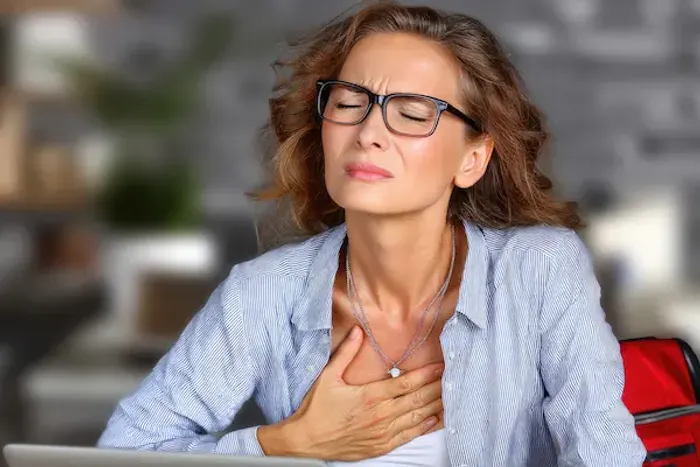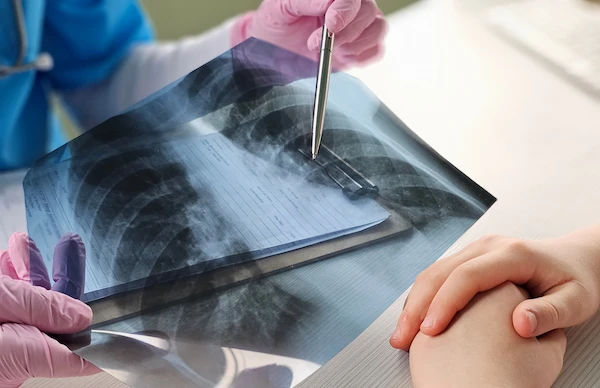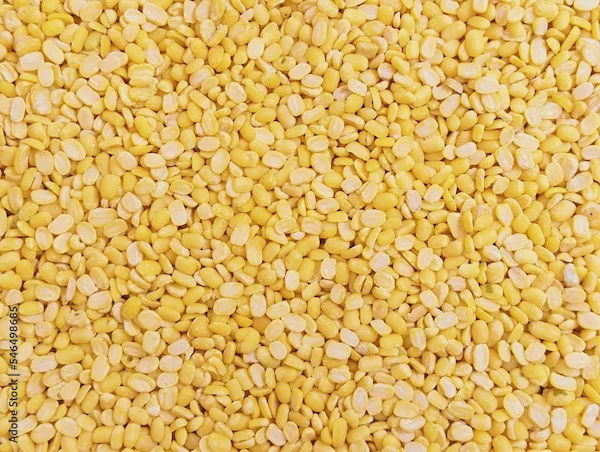Chest Uneasiness: Causes and Insights
Explore common causes of chest uneasiness, from heart-related issues to indigestion and stress. Learn when to seek medical help, and ways to manage and prevent chest discomfort.

Written by Dr. Rohinipriyanka Pondugula
Reviewed by Dr. Shaik Abdul Kalam MD (Physician)
Last updated on 20th Aug, 2025

Introduction
Chest uneasiness is a common concern that many people experience at some point in their lives. It can range from mild discomfort to severe pain and may be caused by various factors, some harmless, while others may require immediate medical attention. If you’ve ever felt tightness, pressure, or an unusual sensation in your chest, this article will help you understand the possible causes, when to seek help, and how to manage it.
What Does Chest Uneasiness Feel Like?
Chest uneasiness can present in different ways, such as:
- A dull ache or pressure
- Sharp or stabbing pain
- Burning sensation
- Tightness or heaviness
- Difficulty breathing
The feeling may come and go or persist for a longer duration. While some causes are minor, others could indicate a serious condition like a heart attack or lung problem.
Consult a Top General Physician for the best advice
Common Causes of Chest Uneasiness
Chest uneasiness can be caused by various factors like:
1. Heart-Related Causes
- Angina: Reduced blood flow to the heart causes chest pain, often triggered by physical exertion or stress.
- Heart Attack: A sudden blockage in the heart’s blood supply leads to intense, crushing chest pain, often radiating to the arm, jaw, or back.
- Pericarditis: Inflammation of the heart’s outer lining causes sharp, stabbing pain that worsens with deep breaths.
2. Digestive Issues
- Acid Reflux (GERD): Stomach acid flowing back into the esophagus causes a burning sensation in the chest.
- Gallbladder Problems: Pain from gallstones may radiate to the chest.
- Gastritis or Ulcers: Stomach inflammation can sometimes mimic chest pain.
3. Respiratory Conditions
- Pneumonia: Infection in the lungs may cause chest pain along with fever and cough.
- Pleurisy: Inflammation of the lung lining leads to sharp pain while breathing.
- Pulmonary Embolism: A blood clot in the lungs causes sudden, severe chest pain and breathlessness.
4. Muscle or Bone-Related Issues
- Costochondritis: Inflammation of rib cartilage causes localized chest pain.
- Muscle Strain: Overexertion or injury can lead to soreness in the chest muscles.
5. Anxiety and Stress
Panic Attacks: Intense anxiety can cause chest tightness, rapid heartbeat, and shortness of breath.
When Should You Seek Immediate Help?
Some symptoms require urgent medical attention. Call emergency services if you experience:
- Severe, crushing chest pain
- Pain spreading to the arm, jaw, or back
- Shortness of breath or dizziness
- Cold sweats or nausea
- Fainting or irregular heartbeat
These could be signs of a heart attack or pulmonary embolism, which need immediate treatment.
How to Manage Chest Uneasiness?
Managing chest uneasiness involves:
1. Lifestyle Changes
- Eat a balanced diet: Avoid spicy, fatty, or acidic foods if you have GERD.
- Exercise regularly: Moderate activity improves heart health but avoid overexertion.
- Manage stress: Practice deep breathing, meditation, or yoga to reduce anxiety-related chest discomfort.
2. Medical Treatments
- For heart conditions: Medications like nitroglycerin or beta-blockers may be prescribed.
- For acid reflux: Antacids or proton pump inhibitors (PPIs) can help.
- For infections: Antibiotics may be needed for pneumonia or other bacterial infections.
3. Home Remedies
- Warm compress: Helps relieve muscle or rib-related pain.
- Ginger tea: Soothes acid reflux and indigestion.
- Hydration: Drinking water can ease mild chest discomfort caused by gas or acidity.
When to See a Doctor?
If your chest uneasiness is persistent, worsening, or accompanied by other concerning symptoms, consult a healthcare professional.
Final Thoughts
Chest uneasiness can be alarming, but understanding its causes helps in taking the right action. While some cases are minor and manageable with lifestyle changes, others need urgent care. Listen to your body, and don’t ignore persistent symptoms. If in doubt, always seek medical advice.
Consult a Top General Physician for the best advice
Consult a Top General Physician for the best advice

Dr. Sandhya Chandel
General Physician/ Internal Medicine Specialist
16 Years • MBBS, MD (Int. Med.), IDCCM
Bilaspur
Apollo Hospitals Seepat Road, Bilaspur
(125+ Patients)

Dr Syed Mateen Pasha
General Physician
2 Years • MBBS
Bengaluru
PRESTIGE SHANTHINIKETAN - SOCIETY CLINIC, Bengaluru

Dr Aakash Andgi
General Physician/ Internal Medicine Specialist
9 Years • MBBS MD
Bengaluru
Apollo Clinic, JP nagar, Bengaluru

Dr. Anand Ravi
General Physician
2 Years • MBBS
Bengaluru
PRESTIGE SHANTHINIKETAN - SOCIETY CLINIC, Bengaluru

Dr. Syed Ismail Ali
General Practitioner
7 Years • MBBS
Hyderabad
Apollo 24|7 Clinic, Hyderabad
Consult a Top General Physician for the best advice

Dr. Sandhya Chandel
General Physician/ Internal Medicine Specialist
16 Years • MBBS, MD (Int. Med.), IDCCM
Bilaspur
Apollo Hospitals Seepat Road, Bilaspur
(125+ Patients)

Dr Syed Mateen Pasha
General Physician
2 Years • MBBS
Bengaluru
PRESTIGE SHANTHINIKETAN - SOCIETY CLINIC, Bengaluru

Dr Aakash Andgi
General Physician/ Internal Medicine Specialist
9 Years • MBBS MD
Bengaluru
Apollo Clinic, JP nagar, Bengaluru

Dr. Anand Ravi
General Physician
2 Years • MBBS
Bengaluru
PRESTIGE SHANTHINIKETAN - SOCIETY CLINIC, Bengaluru

Dr. Syed Ismail Ali
General Practitioner
7 Years • MBBS
Hyderabad
Apollo 24|7 Clinic, Hyderabad




